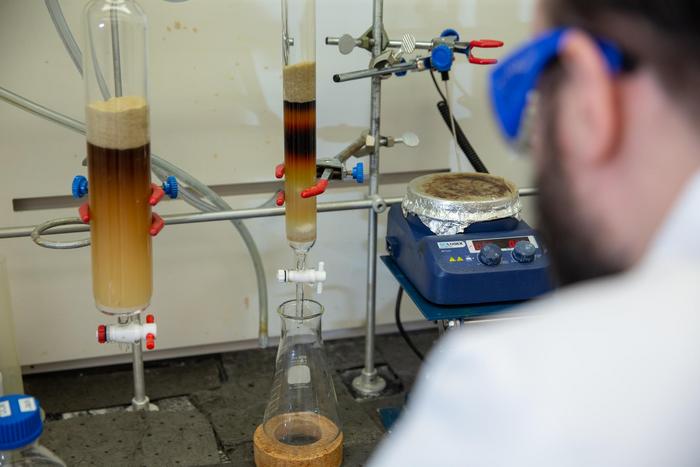Lithium-based nonaqueous redox flow batteries are alternative systems to conventional aqueous redox flow batteries because of their higher operating voltage and theoretical energy density. However, the use of ion-selective membranes limits the large-scale applicability of this type of technology.
Now, researchers at the University of Cincinnati have reported a high-voltage membrane-free lithium-based nonaqueous redox flow battery based on all-organic biphasic system that shows superior performance under both static and flow conditions.
The new system has displayed a number of advantages over their liquid cousins, including an initial average discharge voltage of 3.45 V.
“Water has a voltage limit. Once the voltage of an aqueous battery exceeds the stability window of 1.5 volts, the water can decompose or be split into hydrogen and oxygen, which is explosive,” says Jimmy Jiang, corresponding author.
The elimination of membrane-separator, which is a huge component of upfront costs representing as much as 30% of the system cost, is a particularly significant improvement.
“Membranes are super expensive,” Jiang said. “We developed a new type of energy storage material that improves performance at a lower cost. Likewise, membranes are inefficient. They can’t separate the positive and negative sides completely, so there is always crossover.”
The new redox flow battery has demonstrated energy density of approximately 33 Wh/L. It has also showed 81% of capacity for 100 cycles over approximately 45 days with average Coulombic efficiency of 96% and energy efficiency of 82% at the current density of 1.5 mA/cm2 and at a temperature of 27 C.
The research findings are discussed in “Development of high-voltage and high-energy membrane-free non-acqueous lithium-based organic redox flow batteries,” recently published in Nature Communications.
According to Jiang, the research group has submitted provisional patent applications.
This content is protected by copyright and may not be reused. If you want to cooperate with us and would like to reuse some of our content, please contact: editors@pv-magazine.com.




By submitting this form you agree to pv magazine using your data for the purposes of publishing your comment.
Your personal data will only be disclosed or otherwise transmitted to third parties for the purposes of spam filtering or if this is necessary for technical maintenance of the website. Any other transfer to third parties will not take place unless this is justified on the basis of applicable data protection regulations or if pv magazine is legally obliged to do so.
You may revoke this consent at any time with effect for the future, in which case your personal data will be deleted immediately. Otherwise, your data will be deleted if pv magazine has processed your request or the purpose of data storage is fulfilled.
Further information on data privacy can be found in our Data Protection Policy.